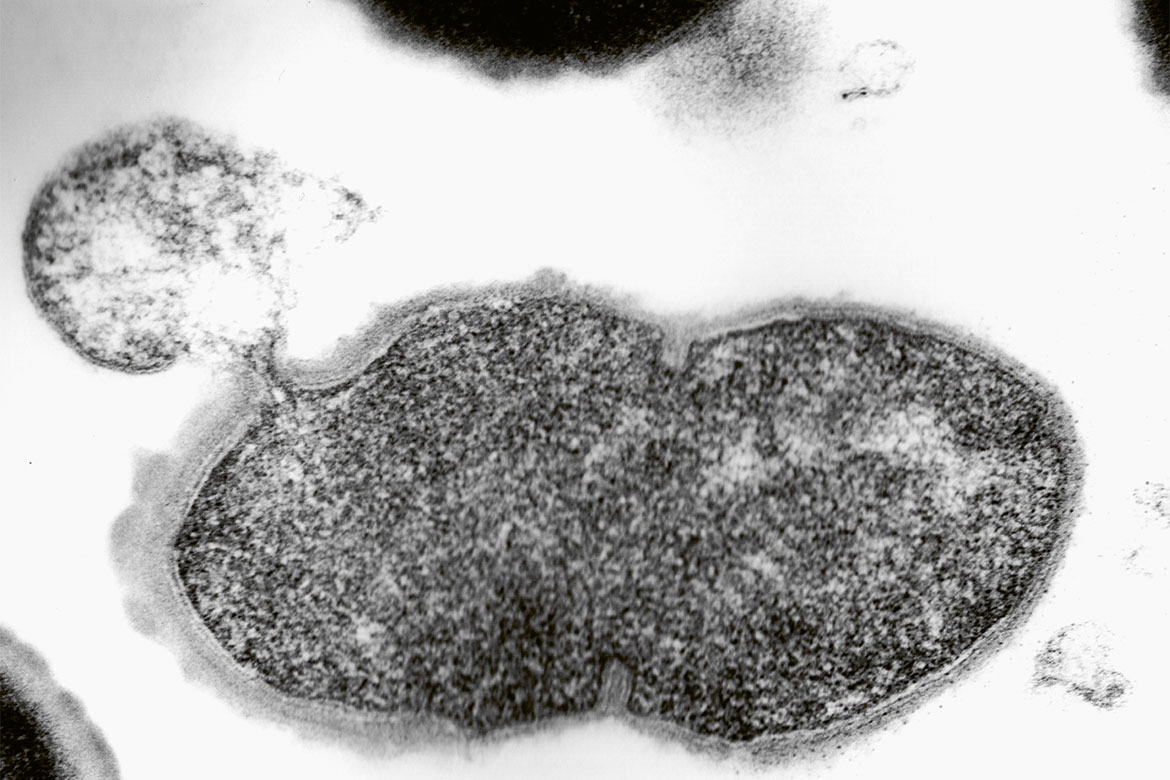New hope for meningitis
A combination of drugs could reduce the severe side-effects that arise when treating pneumococcal infections of the cerebral membranes.

Some antibiotics make bacteria burst, which can put too much of a strain on the immune system. | Image: Loeffler, J.M., Nelson, D., & Fischetti
Across the world, pneumococcal infections of the meninges still kill up to a third of all children affected. And almost half of the survivors suffer from consequential damage such as hearing impairment or learning difficulties. A new study by the University of Bern on 180 young rats is raising hopes of better chances of healing. A team run by the infectiologist Stephen Leib was able to demonstrate that a combination of two drugs led to a less severe progression of the disease in the animals. They had previously tested both drugs separately, with success – but combining them brought even better results.
What is especially dangerous about pneumococcal meningitis is the body’s excessive inflammatory response, which damages the brain. Adult patients are thus additionally given steroids with their antibiotics in order to curb the vehement reaction of the immune system. But in children, these steroids have a detrimental impact on their developing brains.
The choice of antibiotic is thus crucial. Those that are usually employed make the bacteria burst, which provokes a strong reaction from the immune system. In their study, the researchers from Bern used the antibiotic daptomycin, which kills bacteria but otherwise leaves them structurally intact.
The other drug, Trocade, prevents the inflammatory cells from entering into the brain by hindering them from dissolving a substance between the cells as is otherwise common in cases of inflammation. “The results are positive, so a bigger study is now starting up in France in which the doctors will treat adult patients with daptomycin”, reports Leib.
Alexandra Bröhm




